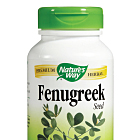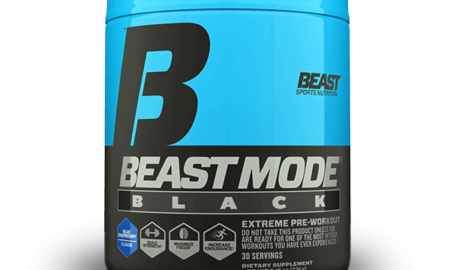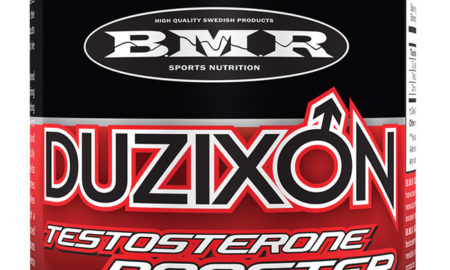 It appears that fenugreek has the ability to increase the effectiveness of insulin, growth hormone and testosterone—three of your most anabolic hormones. It’s also known as trigonella foenum graecum and is one of the oldest known medicinal herbs—used to maintain respiratory and stomach health. Recently, there has been intense interest in fenugreek in the medical community as mounting data indicate that it’s an antidiabetic agent thanks to its ability to increase insulin sensitivity. Athletes are interested because fenugreek contains a number of anabolic growth agents.
It appears that fenugreek has the ability to increase the effectiveness of insulin, growth hormone and testosterone—three of your most anabolic hormones. It’s also known as trigonella foenum graecum and is one of the oldest known medicinal herbs—used to maintain respiratory and stomach health. Recently, there has been intense interest in fenugreek in the medical community as mounting data indicate that it’s an antidiabetic agent thanks to its ability to increase insulin sensitivity. Athletes are interested because fenugreek contains a number of anabolic growth agents.
For example, it contains a variety of amino acids and steroidal saponins, which are the building blocks of various steroids, including testosterone. Analysis also reveals the presence of protodioscin, a chemical also found in the hormone DHEA, which has been shown to boost testosterone in older men.
Because of fenugreek’s ability to regulate blood sugar and improve insulin sensitivity, studies suggest that it can assist in stimulating the growth of muscle.
Much of the emerging science concerning fenugreek’s anabolic capabilities has been focused on the amino acid 4-hydroxyisoleucine, a derivative of isoleucine. A growing body of evidence has shown that 4-hydroxyisoleucine improves insulin’s ability to more efficiently transport nutrients and compounds like protein, carbs, creatine and amino acids into the cells.
In addition, in exciting new research conducted at the National Products Research Institute and College of Pharmacy at Seoul National University in Korea, researchers discovered two growth hormone release stimulators in fenugreek—fenugreek saponin I and diosein—that caused 12.5 and 17.7 percent increases, respectively, in growth hormone. Those results were some of the first to demonstrate that steroidal saponins can stimulate growth hormone release from pituitary cells. GH can increase muscle mass, strength and bone development as well as enhance joint and muscle repair and fat burning.
Another compound found in fenugreek, furostanol glycoside fenusides, has shown the ability to increase the effects of testosterone. In fact, male athletes who took 600 milligrams per day of fenuside extracts for eight weeks significantly reduced bodyfat and improved muscular hardness and density, some of which was due to a 6 percent increase of circulating testosterone and up to 12 percent increases in free testosterone. The researchers attribute that to fenugreek’s ability to inhibit the activity of aromatase, the enzyme that converts testosterone to estrogen.
Fenugreek also regulates 5-alpha reductase, which accelerates testosterone’s conversion to dihydrotestosterone. DHT is linked to male pattern baldness, diminished libido, erectile dysfunction and male breast cancer, so fenugreek could help reduce or eliminate many of those negative effects.
Suggested dose: 500 to 2,000 milligrams taken in two or three divided doses daily. For best results current data suggest following a five-days-on/two-days-off cycle for eight weeks. After that stop taking it for two weeks before embarking on another cycle.




















You must be logged in to post a comment Login